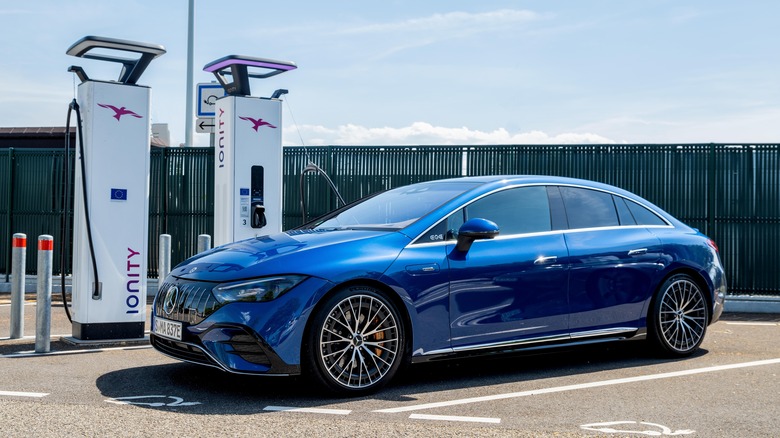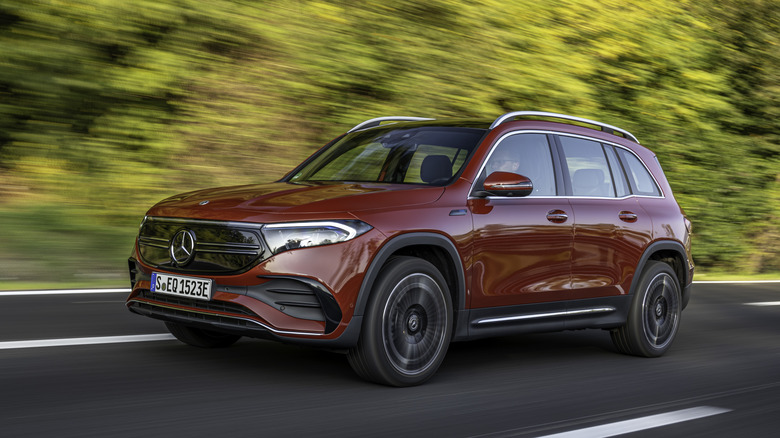Mercedes' EV Roadmap Just Hit An Unexpected Delay
Just as it seemed that nearly every automaker planned to have an entirely electric lineup by the year 2030, Mercedes-Benz is taking a step back. According to its annual financial results conference, Mercedes has changed its electrified tune, now planning that upwards of 50% of its lineup will be electric by "the second half of the decade." Mercedes initially wanted to accomplish that task by 2025, per Reuters. Additionally, Mercedes said, "The company plans to be in a position to cater to different customer needs, whether it's an all-electric drivetrain or an electrified combustion engine, until well into the 2030s."
That's a far cry from other companies, which seemed poised and ready to roll out an EV lineup the second it's possible. Does Mercedes see something in the future that other automakers aren't aware of? Maybe not, but it mostly boils down to the economics of such a task. Like it or not, EV sales have slowed tremendously over the past several quarters, and jumping the gun before the market even wants to buy EVs wouldn't be the best idea.
Scaling back EVs
In its report, Mercedes attests part of the slowdown to "an exceptional degree of uncertainty" that affects the entire automotive market and lists tensions with China, global supply issues, and the ongoing war in Ukraine as sources of strife. Mercedes expects that 2024 will see EVs accounting for 19%-21% of every new Mercedes car sold. As it stands, Mercedes has six EVs currently on the market. As of now, it seems that Mercedes will continue to make gasoline-powered cars for a number of years into the future, right in the faces of other automakers who are eager to beat companies like Tesla in the EV market.
Mercedes isn't alone in experiencing issues getting EVs out the door. Last year, General Motors could only sell single-digit numbers of its Ultium-powered Hummer EV and the Cadillac Lyriq wasn't on a hot-streak either. Although no other automakers have made announcements similar to Mercedes, it wouldn't be surprising if other car companies start toning down the all-EV future language soon.

